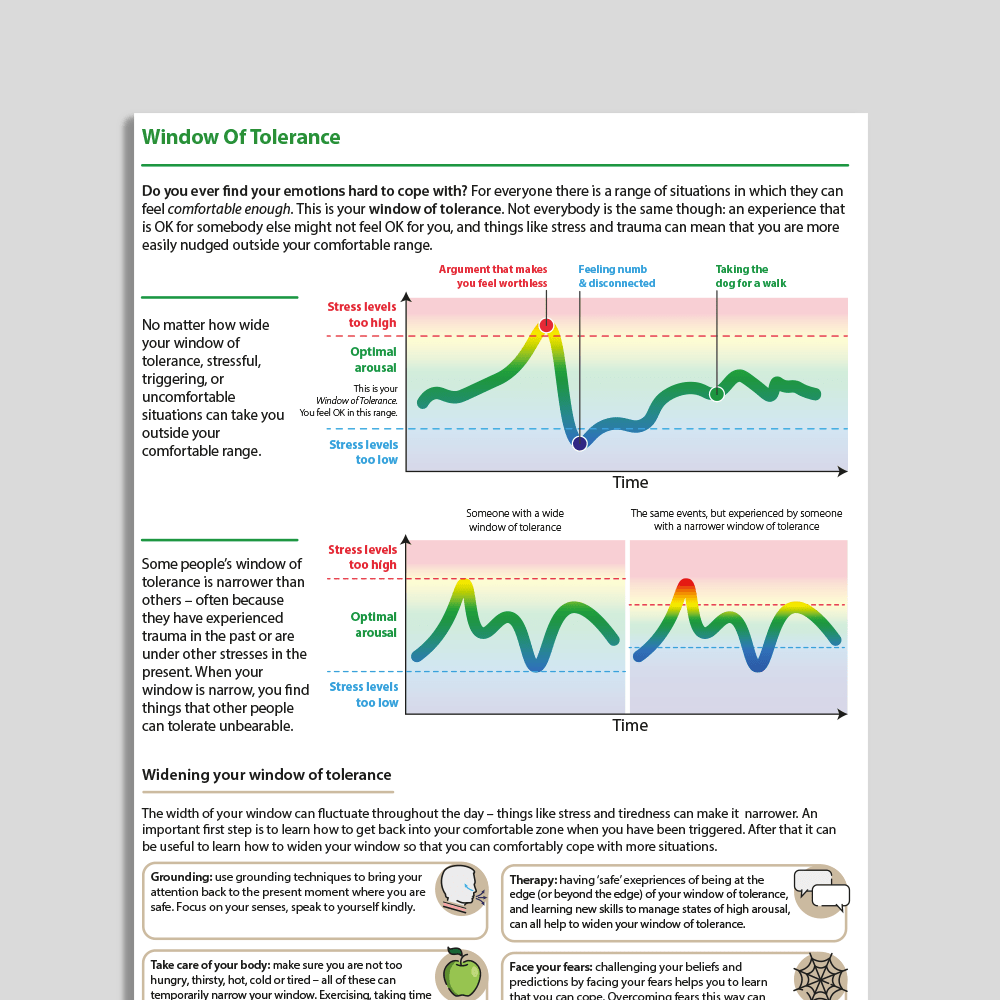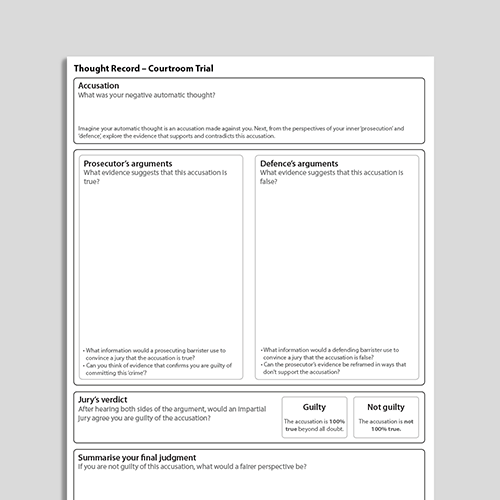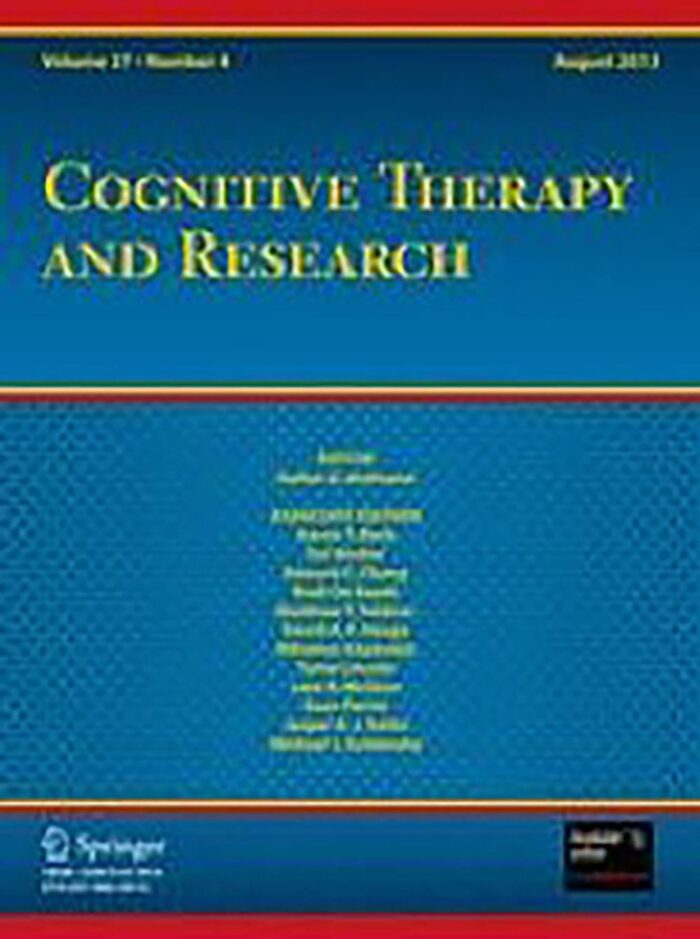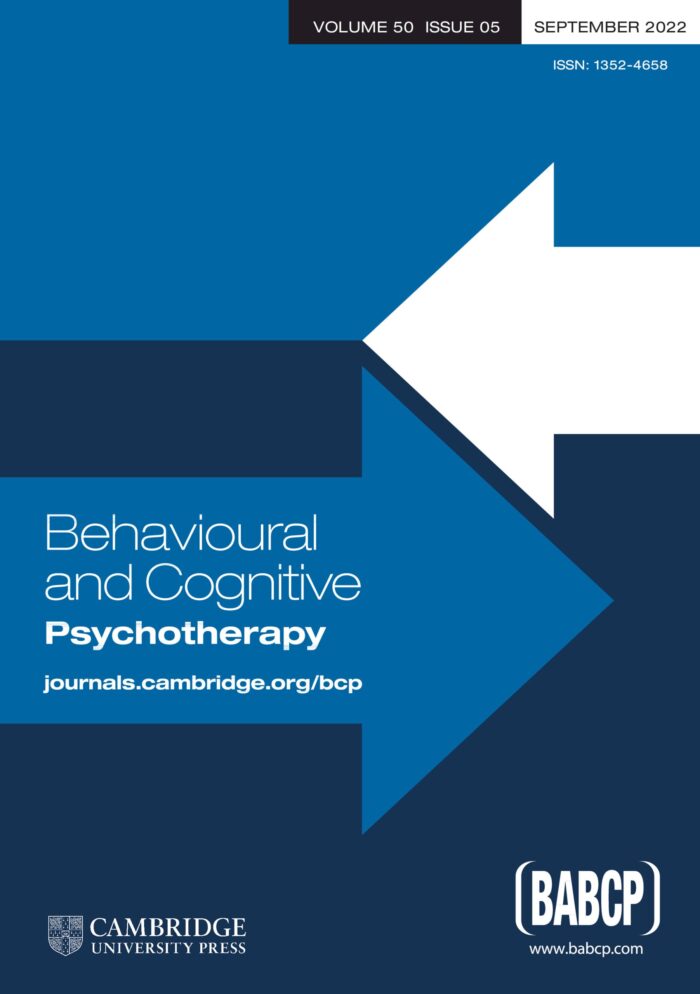5th September 2022 Newsletter

Welcome to the September 2022 newsletter. This month we’re announcing the release of two new resources: Window of Tolerance and Thought Record – Courtroom Trial. Our research roundup looks at a paper exploring the fear of losing control, and another showcasing a newly developed questionnaire for agoraphobic avoidance.
New Releases

Window of Tolerance
The window of tolerance concept, coined by Dan Siegel in his 1999 book The Developing Mind, proposes that everyone has a range of intensities of emotional experience which they can comfortably experience, process, and integrate. When working with survivors of trauma, the window of tolerance concept suggests two approaches:
- Help clients to stay within their window.
- ‘Widen the window of tolerance’ so that clients have more space in which to tolerate and process their experiences.

Thought Record – Courtroom Trial
Taken from our recently released guide to Evaluating Unhelpful Automatic Thoughts, the Thought Record – Courtroom Trial worksheet replaces an older thought record on the same theme. Using the metaphor of a courtroom trial helps clients to externalize their NATs as an ‘accusation’, and helps to scaffold the process of evaluating the negative thought. Thoroughly redesigned, with comprehensive therapist instructions and prompts, this is a useful addition to your toolbox.
Latest Research

Fear of losing control
People who struggle with social anxiety or panic disorder frequently report the belief that they may lose control over their behavior, emotions, or physiological reactions. People with social anxiety often fear that this failure will lead to negative judgements from others. This neat experimental study used false feedback to manipulate participants’ beliefs about their risk of losing control. They found that holding negative beliefs about losing control led to increased social anxiety, and to greater post-event processing. The authors speculate that potential implications for the treatment of social anxiety include attentional retraining, which involves shifting attention between internal cues of loss of control and others’ reactions in order to test the frequency or visibility of imagined losses of control, or interventions, which increase perceived control, such as fostering confidence in social skills or grounding exercises.
Kelly-Turner, K., & Radomsky, A. S. (2022). Always Saying the Wrong Thing: Negative Beliefs About Losing Control Cause Symptoms of Social Anxiety. Cognitive therapy and research, 1-13.

A new measure of agoraphobic avoidance
Agoraphobia – the anxious avoidance of everyday situations – is prevalent across a wide range of conditions including panic, depression, social anxiety, and psychosis. A cognitive perspective is that avoidance is a safety-seeking response to threat cognitions (anticipated harm). Existing measures of threat cognitions have typically been developed per-disorder, and so being able to quickly assess threat cognitions and behaviors common to agoraphobic difficulties would benefit clinicians and researchers. The Oxford Cognitions and Defences Questionnaire (O-CDQ) is a brief new measure which appears to capture the link between fearful cognitions (e.g. “I will fail”) and the use of behaviors (avoidance and safety behaviors) aimed at reducing the likelihood of the feared outcome occurring.
Rosebrock, L., Lambe, S., Mulhall, S., Petit, A., Loe, B. S., Saidel, S., … & Freeman, D. (2022). Understanding agoraphobic avoidance: the development of the Oxford Cognitions and Defences Questionnaire (O-CDQ). Behavioural and Cognitive Psychotherapy, 50(3), 257-268.
